Iran: US should give guarantees, sanctions waiver ‘not enough’
Iran's Foreign Minister Hossein Amir-Abdollahian has reacted to a claim by the US that it has restored a sanctions waiver, saying Washington must show goodwill on the ground not on paper.
He made the remarks on Saturday, a day after the administration of US President Joe Biden restored a sanctions waiver, which was rescinded by his predecessor, Donald Trump, in May 2020.
“In recent days, we have explicitly told the American parties through intermediaries, who exchange messages, that they must show their goodwill in practice,” Amir-Abdolahian told reporters.
"In our view, goodwill in practice means that something tangible should happen on the ground. The removal of some sanctions can, in the true sense of the word, translate into the goodwill that the Americans are talking about. What happens on paper is good, but not enough.”
The top Iranian diplomat was also asked about recent comments by US Special Envoy for Iran Robert Malley, who said Washington could not guarantee the next administration’s adherence to the 2015 Iran deal, officially called the Joint Comprehensive Plan of Action (JCPOA).
“Regarding the Vienna talks on removing the sanctions, one of our main issues is to get the necessary guarantees from the other parties, especially from the West,” he said.
“We demanded the guarantee at all political, legal and economic levels. Agreements have been reached in some areas, but the Iranian negotiating team will seriously pursue getting tangible guarantees from the Western sides that they abide by their commitments under a Vienna deal.”
'Iran’s right to nuclear energy, security cannot be restricted'
Earlier on Saturday, Iran’s top security official said the country’s right to peaceful nuclear activities along with its security cannot be curbed by any agreement.
“Iran's legal right to continue research and development and to maintain its peaceful nuclear capabilities and achievements, along with its security against supported evils, cannot be restricted by any agreement,” Secretary of Iran's Supreme National Security Council (SNSC) Ali Shamkhani tweeted.
The sanctions relief had allowed Russian, Chinese and European companies to carry out non-proliferation work at Iran’s nuclear sites.
The US State Department sent a report signed by Secretary of State Antony Blinken to Congress, explaining that restoring the waiver will help the in Vienna talks, which are aimed at lifting US sanctions.
"The waiver with respect to these activities is designed to facilitate discussions that would help to close a deal on a mutual return to full implementation of the JCPOA (2015 Iran deal) and lay the groundwork for Iran's return to performance of its JCPOA commitments," read the report, a copy of which was seen by Reuters.
"It is also designed to serve US non-proliferation and nuclear safety interests and constrain Iran's nuclear activities. It is being issued as a matter of policy discretion with these objectives in mind, and not pursuant to a commitment or as part of a quid pro quo.”
Speaking on condition of anonymity, a senior US State Department official claimed the waiver was needed to allow for technical discussions that were key to the Vienna talks in their “final weeks”.
Some reports interpreted the US sanctions waiver as a show merely meant to ease pressure on Washington and launch a new blame game against Tehran.
Trump unilaterally left the JCPOA in May 2018 and re-imposed the anti-Iran sanctions that the deal had lifted. He also placed additional sanctions on Iran under other pretexts not related to the nuclear case as part of his “maximum pressure” campaign.
Following a year of strategic patience, Iran decided to let go of some of the restrictions on its nuclear energy program, resorting to its legal rights under the JCPOA, which grants a party the right to suspend its contractual commitments in case of a non-performance by the other side.
The Biden administration had voiced a willingness to compensate for Trump’s mistake and rejoin the deal, but it has retained the sanctions as leverage.
Envoys from Iran and the P4+1 group of countries — Britain, France, Russia, and China plus Germany — have been holding negotiations in the Austrian capital for roughly 10 months in a bid to resurrect the JCPOA and lift the US sanctions.
The eighth round of the talks has been put on pause as diplomats returned to their capitals for consultations.
Pezeshkian: Iran’s nuclear logic rooted in rights enshrined in NPT
VIDEO | Mexican anti-Trump protesters rally against US intervention in Latin America
VIDEO | Defeating Western and US sanctions for decades
VIDEO | Iranian police officer martyred by foreign-backed terrorists during recent unrest
VIDEO | 'Ta Soraya' Award advances Iran knowledge-based economy
VIDEO | Japan starts voting as polls suggest Takaichi’s coalition set to win
Israel killed 37 Palestinian children in 2026 Gaza attacks: UNICEF
Israeli army, settlers intensify violent displacement of Palestinians across West Bank: Report


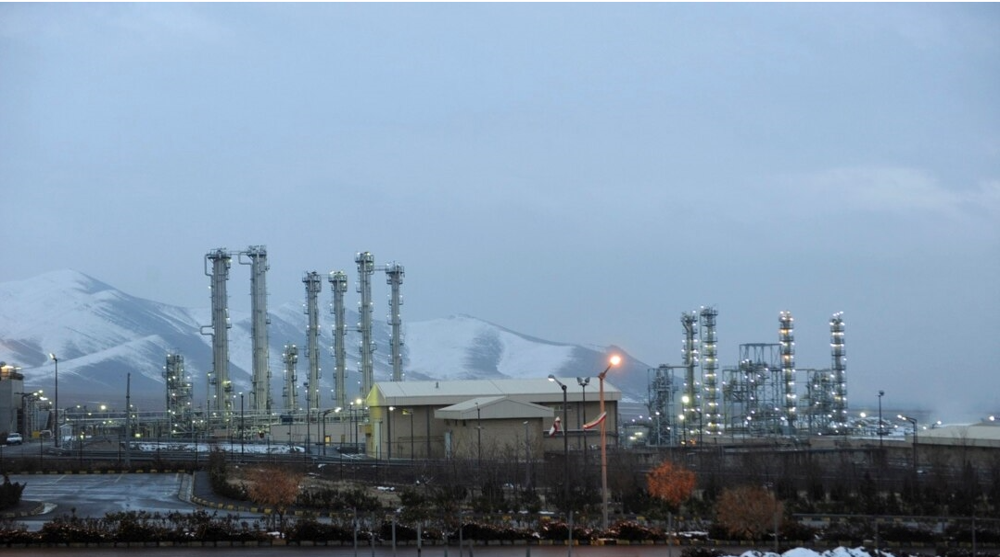
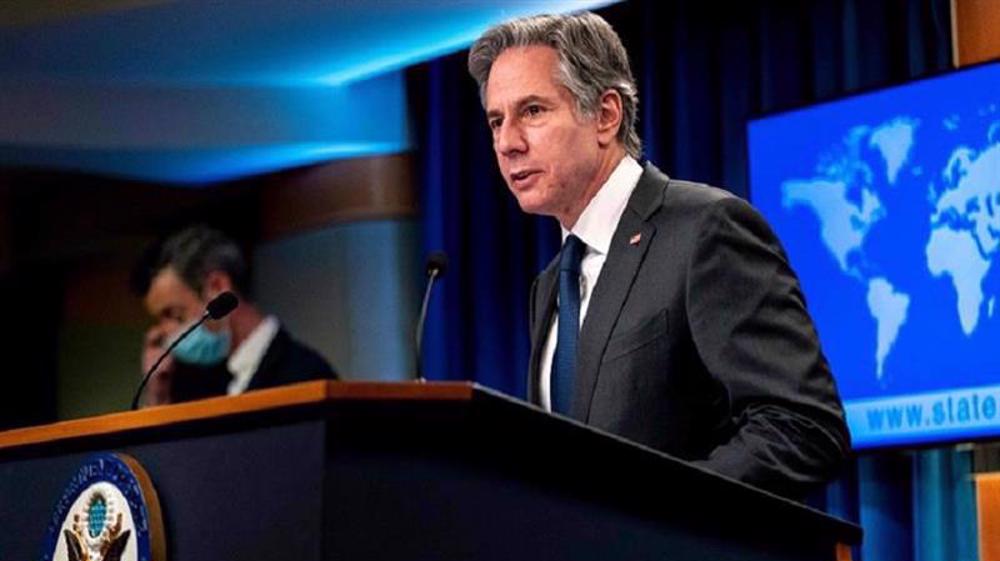
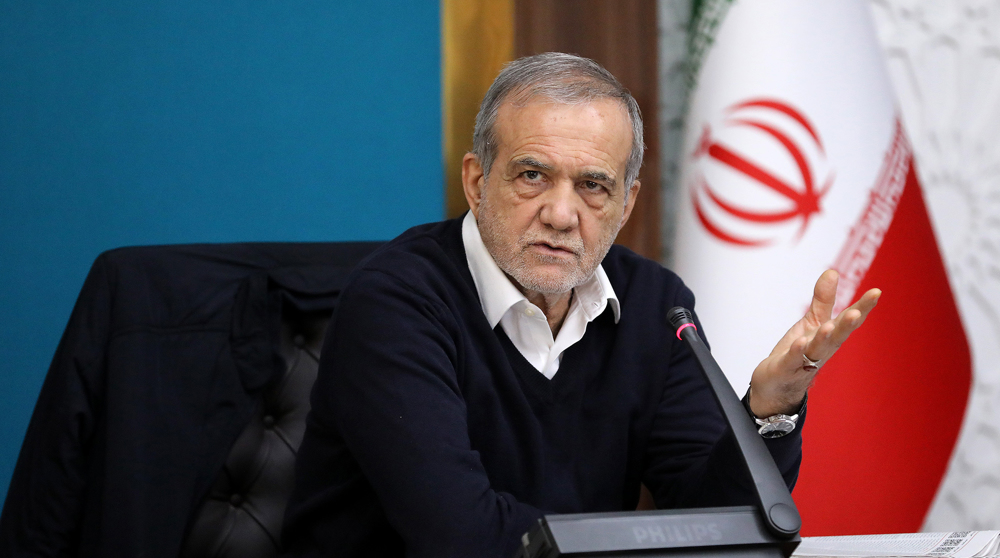
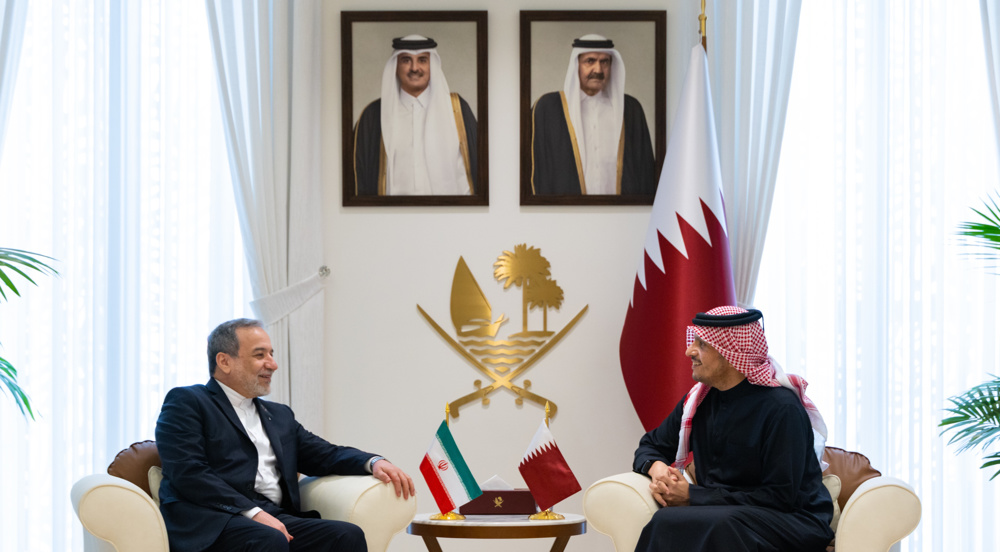
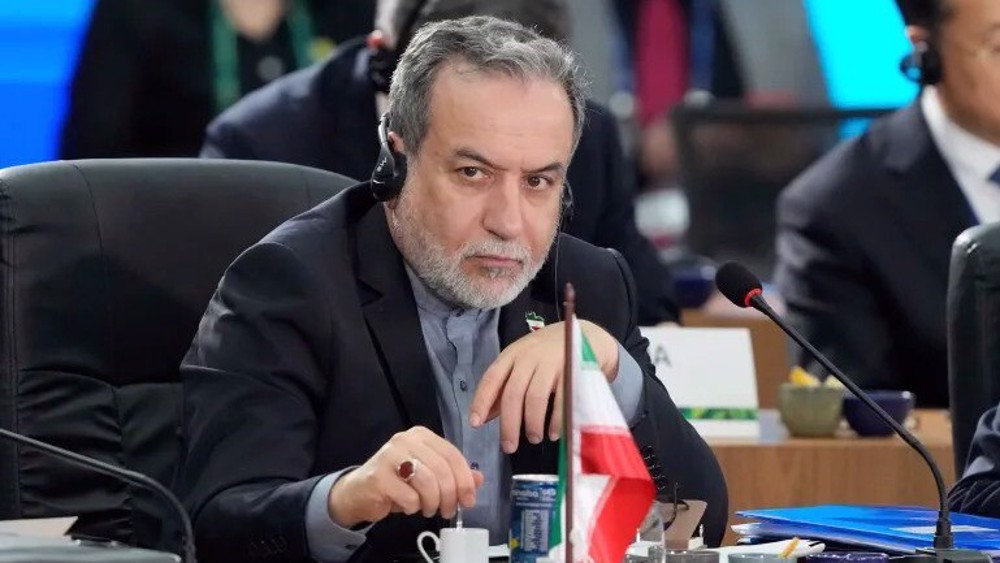




 This makes it easy to access the Press TV website
This makes it easy to access the Press TV website